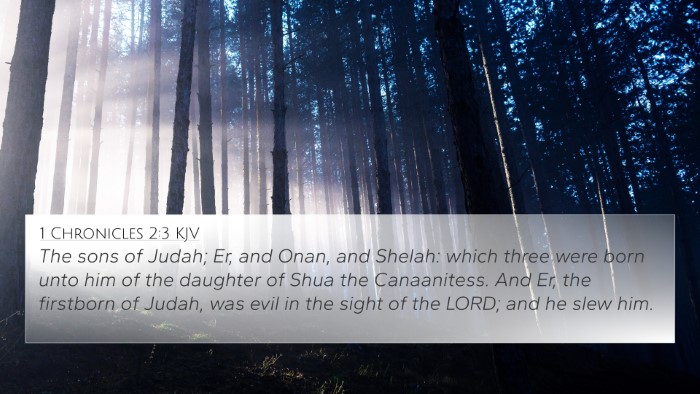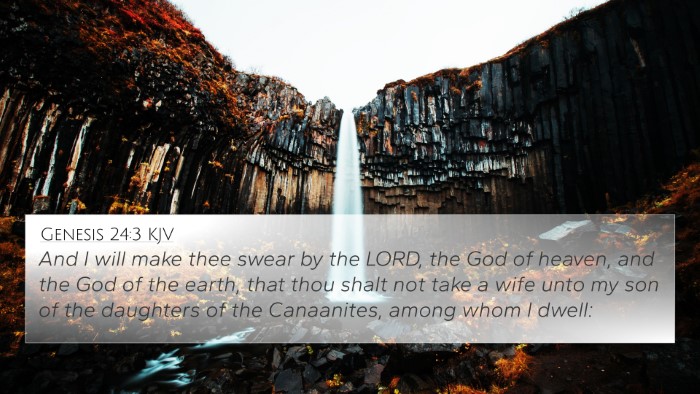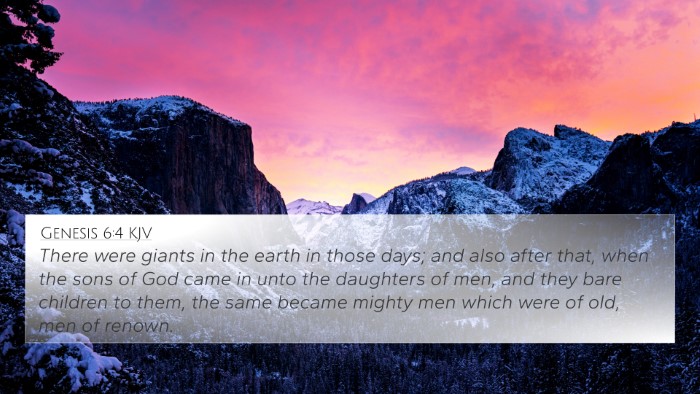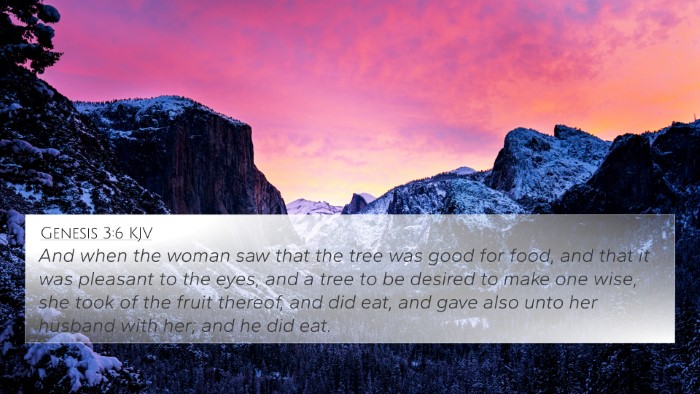Understanding Genesis 38:2
Genesis 38:2 states: "And Judah saw there a daughter of a certain Canaanite, whose name was Shua; and he took her, and went in unto her."
Summary of Meaning
This verse introduces the pivotal figure of Judah in the narrative of Genesis. Judah's choice to marry a Canaanite woman, Shua, reflects his departure from the covenantal expectations held by his family. The act of taking a foreign wife carries significant implications in the context of the biblical narrative, suggesting themes of assimilation, cultural conflict, and the intersection of lineage with divine purpose.
Commentary Insights
-
Matthew Henry:
Matthew Henry emphasizes the significance of Judah's actions in the broader narrative of Israel's history. He notes the clash between divine command and human choice, indicating how Judah's marriage to a Canaanite may lead to complications within his family and community in terms of faith and practice.
-
Albert Barnes:
Barnes highlights that the mention of Judah's wife and her lineage is crucial to understanding the subsequent events in the narrative, particularly regarding the heritage of the tribe of Judah. He suggests that this union foreshadows the complexities in the lives of those descended from Judah, especially concerning their relationship with God and His expectations.
-
Adam Clarke:
Clarke provides insight into the social dynamics at play during this period. He points out the consequences of intermarriage with Canaanites, reflective of a broader theme of Israel's identity crisis and struggle to maintain covenant fidelity amidst external influences. Clarke argues that Judah's action sets the stage for future conflicts involving his descendants.
Related Bible Cross-References
Genesis 38:2 carries rich thematic connections with other scripture texts. Below are several key cross-references:
- Genesis 24:3 - God's command regarding marrying from one's own people.
- Exodus 34:16 - Admonition against marrying foreign women leading to idol worship.
- Deuteronomy 7:3 - The prohibition of marrying into the Canaanite tribes.
- 1 Kings 11:1-2 - Solomon's marriages to foreign women leading to his downfall.
- Judges 3:6 - The Israelites marrying the Canaanites, leading to cycles of sin.
- 2 Corinthians 6:14 - The New Testament warning against being unequally yoked with unbelievers.
- Revelation 2:14 - The mention of compromising faith through association with foreign ideologies.
Thematic Connections
The story of Judah and Shua raises important themes that resonate throughout both the Old and New Testaments, marking the interplay of divine governance and human action. Notably, the act of marrying outside the faith reflects a continuity of struggle as seen in various biblical narratives. The consequences of Judah's decisions reverberate through history, as seen in the genealogical lineage leading to King David and ultimately, Jesus Christ.
Implications for Modern Readers
For modern readers, Genesis 38:2 serves as a poignant reminder of the importance of spiritual fidelity and the potential pitfalls of cultural assimilation. The narrative encourages reflection on our contemporary choices regarding relationships, identity, and faith, inviting dialogue on the allure of worldly acceptance versus the commitment to divine principles.
Conclusion
In exploring Genesis 38:2, believers can appreciate the depth of scripture through careful cross-referencing and thematic analysis. This verse not only illustrates the historical challenges faced by the Israelite people but also offers timeless lessons for navigating the complexities of faith in a pluralistic world.













